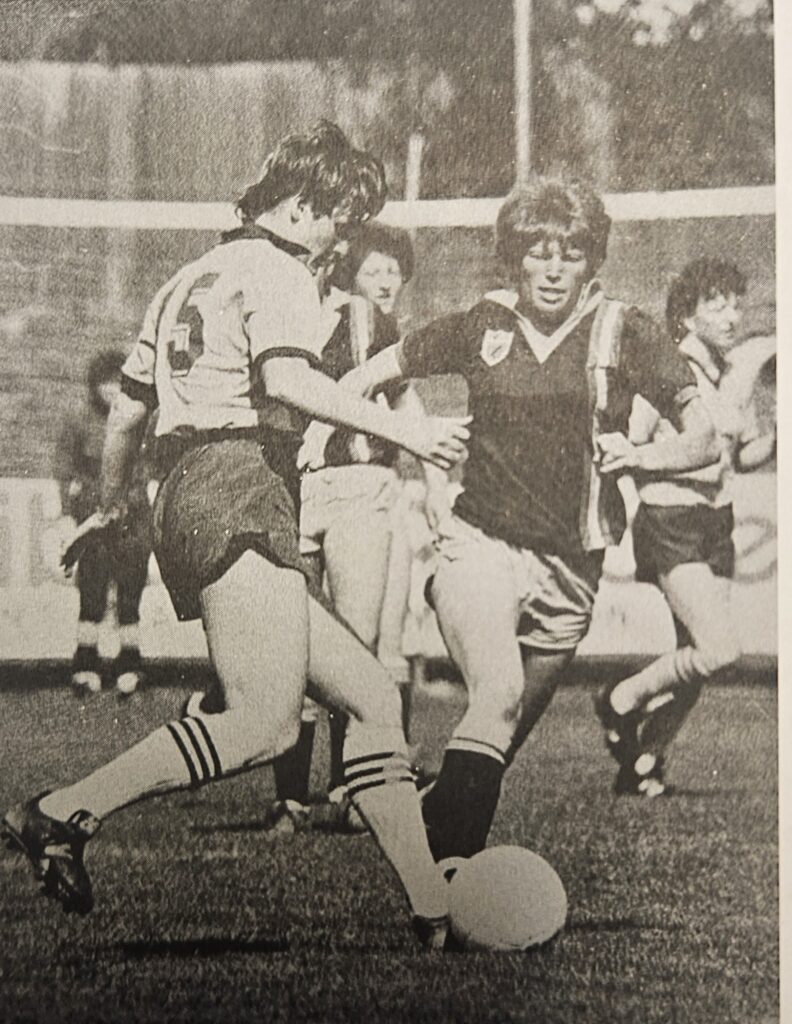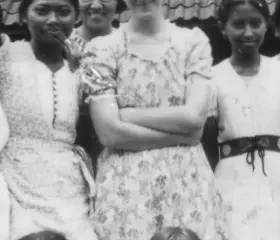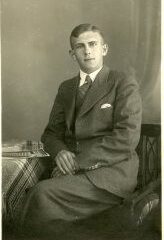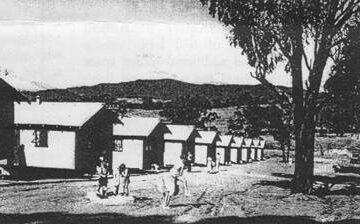Liz Elliott (née Vervoort) was born in 1956 in Venray, the Netherlands, where her parents ran a farm. Growing up as the only girl among six brothers, Liz developed her football skills in the backyard, playing alongside her siblings. Despite her enthusiasm, her father did not allow her to join a football club, as he believed the sport was not suitable for girls. It wasn’t until 1980, at the age of 24, that she was able to join an indoor football team in Venray.
In 1981, while in Canada, Liz met John Elliott, her future husband. She followed John to his hometown of Kingston, Tasmania, where they married in 1983. Kingston was known for its large Dutch Calvinist migrant community, established during the 1950s. In Tasmania, Liz not only started a horse-riding school but also reignited her passion for football. She began playing for the Kingston Sports Club and later joined a professional indoor football team in Hobart in 1985. That same year, she also played outdoor football with the Claremont women’s team.

Her talent and determination were quickly recognised, leading to her selection for the Tasmanian team for the national women’s championships in Melbourne. Liz was subsequently selected for the Australian squad for the 1986 OFC Women’s Championship in New Zealand. However, she chose not to participate, as she was pregnant with her first child, daughter Monique.
Following Monique’s birth, Liz resumed playing and continued to represent Tasmania for another decade in national competitions, retiring from representative football in 1995. She remained active at the community level, playing for Kingsborough well into her 50s. Her football journey came to an end when a knee injury forced her to stop playing.
Liz Elliott’s story reflects the persistence and passion of Dutch migrants and their descendants in Australian sport. From backyard games in Venray to state representation in Tasmania, her football journey is a remarkable chapter in the history of Dutch-Australian women in sport.
Source: Clogball


